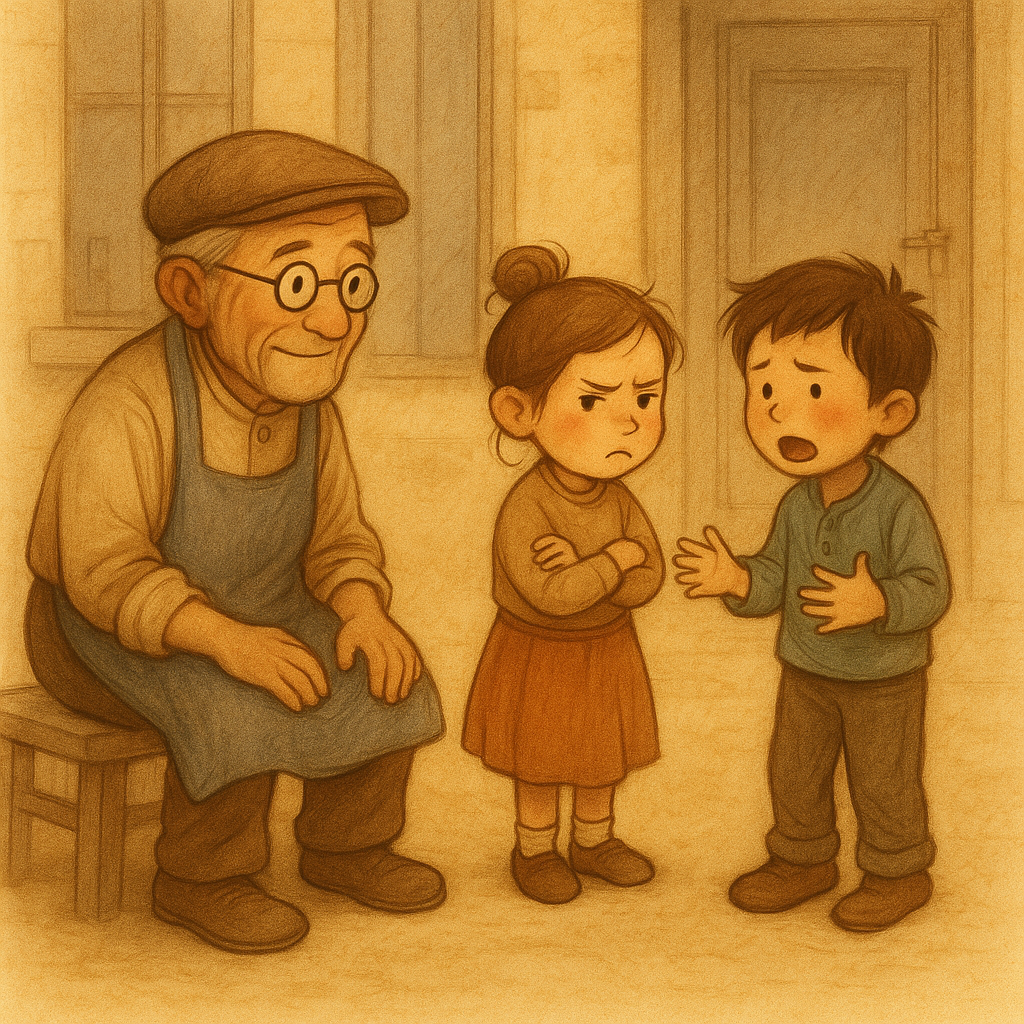*The English version is below.

「それ、ぼくが先に使ってた!」
「でも貸してって言ったのに!」
外国につながる幼児期の子どものけんかは、日常的に起こる、ありふれた出来事です。
親としては、つい止めたくなったり、どちらが悪いのかを判断したくなったりするものです。
けれど、そのたびに私たちは、ある問いに立ち返ることになります。
子どものけんか、どうやって「終わらせれば」いいのか?
しかし、心理的な視点から見ると、より大切な問いは別のところにあるのかもしれません。
このけんかで、子どもたちはどんな感情を抱いたのか?
親は、その感情をどう受け止めることができるのか?
この視点こそが、幼児期のけんかに関わるときの出発点になります。
ことばの壁と文化の違いが交差する、外国につながる幼児期の子どものけんか
特に、外国につながる子どものけんかには、「ことばの壁」や「文化的価値観の違い」が複雑に絡んでいます。
たとえば――
- 自分の気持ちを、その場で適切に言葉で表現できないために、誤解を招いてしまう
- 「年長者が我慢する」「場の空気を優先する」といった日本独自の暗黙のルールに戸惑う
- 「違っていてもいい」「違いは、個性であり特性である」という前提が乏しく、同調や空気を読むことが重視されがち
こうした文化的背景の違いが、子どものけんかをより複雑にします。
関わる大人の“まなざし”も、けんかを左右する
さらに、けんかの場面で関わる大人たちには、次のような関わり方の傾向が見られることがあります。
- 「言い訳は反省していない証拠」という価値観から、子どもの説明を遮ってしまう
- 「自己主張が強い子=わがまま・往生際が悪い」と捉え、感情を出すこと自体を否定的に見る
- 「とにかく謝らせる」「どちらも悪いことにする」といった、子どもの感情に触れずに、けんかを早く終わらせようとする対応
これらは、悪意からではなく、多くの大人が、自分自身の子ども時代に経験してきた日本的な“しつけ”や“常識”の影響が反映された結果といえるでしょう。
しかし、感情の背景を聴かずに一方的に結論を下す関わり方では、「わかってもらえなかった」という失望だけが子どもの心に残ってしまいます。
必要なのは、「誰が悪いかを見つけること」でも「裁くこと」でもない。
だからこそ、子どものけんかにおいて本当に必要なのは、「誰が悪いかを見つけること」でも「どちらが正しいかを裁くこと」でもありません。
むしろ、「どうしてそうなったのか」、「どんな気持ちだったのか」を一緒に受け止めることです。
つまり、やり取りを通して垣間見える子どもの気持ちを受け止めることなのです。
子どもが自分の気持ちや行動の理由を言葉にすることは、自己理解と自己肯定感を育む大切なプロセスです。
そして、親がその言葉にじっくり耳を傾けることは、
「自分は大切にされている」
「ちゃんとわかってもらえる存在なんだ」
という深い安心感につながっていきます。
対立は、他者と生きる力を育てる“入口”
特に、異なる文化的背景をもつ子どもたちにとっては、こうしたけんかの経験そのものが、大切な成長の機会となります。
それは、
「自分の気持ちを伝えてもいい」
「対立することもある」
「間違っていても大丈夫」
このような感覚を子どものなかな育んでいく機会となるからです。
けんかは、問題ではなく育ちの途中の対話。
他者とともに生きていくための、かけがえのない第一歩なのです。
心がけたいこと
まず、すぐに止めるのではなく、気持ちに寄り添うこと。
「どっちが悪いか」ではなく、「何を感じたのか」を聴いてみること。
感情を翻訳し、届け合う“通訳者”として、子どもに関わること。
こうした小さな関わりの積み重ねが、自己肯定感と他者との信頼関係の土台を育てていきます。
大倉山カウンセリングより
外国につながる子どものけんかの背景にある「ことばにならない気持ち」「文化の違い」「親としての戸惑い」。
それらを誰かと一緒に整理したいとき、ひとりで抱えるのが難しいとき、どうぞ大倉山カウンセリングへご相談ください。
私たちは、子どもとそのご家族が、自分の気持ちを安心して伝え合える関係づくりをサポートする思いで、日々そっと寄り添っています。
Understanding Feelings in Conflicts Among Young Children with Foreign Roots
“I was using that first!”
“But I asked you to share!”
Conflicts among young children with foreign roots are an everyday occurrence—ordinary, yet emotionally charged.
As parents, we often feel compelled to intervene immediately or to determine who is at fault.
But in those moments, we are faced with a deeper question: How should we “resolve” children’s conflicts?
From a psychological perspective, however, the more important question might be elsewhere:
What emotions were stirred in the children during this conflict?
And how can we, as adults, receive those emotions with care?
This perspective becomes the starting point when supporting young children during their conflicts.
When Language Barriers and Cultural Differences Intertwine
Conflicts involving children with foreign roots often contain complex layers of language barriers and cultural value differences.
For example:
- Children may not be able to express their feelings adequately in words, leading to misunderstandings.
- They may feel confused by Japan’s unspoken cultural expectations such as “older children must yield” or “reading the room is more important than speaking up.”
- There is often a lack of the perspective that “differences are okay,” and conformity or reading social cues tends to be overly emphasized.
These cultural differences make children’s conflicts even more intricate.
The Way Adults View Conflicts Can Shape Their Outcome
Moreover, the way adults respond in such moments can greatly influence the dynamic:
- Viewing children’s explanations as mere “excuses” may lead to dismissing their voices.
- Labeling assertive children as “selfish” or “stubborn” may discourage emotional expression.
- Pushing for quick apologies or attributing blame to both sides can prevent emotions from being heard.
These tendencies are often not rooted in malice, but rather reflect the values many adults internalized through their own childhood experiences in Japanese culture.
However, when adults impose judgments without listening to the feelings behind children’s actions, only a sense of “not being understood” remains in the child’s heart.
What Matters Is Not “Blame,” But “Understanding”
What children need during conflict is not someone to determine who was wrong or who should be punished.
What they need is someone to wonder with them:
“Why did this happen?”
“How did you feel?”
In other words, what matters is being present with the emotions that surface in these interactions.
When children are supported in putting their feelings and actions into words, it nurtures self-understanding and self-esteem.
And when parents listen attentively to those words, it gives rise to a deep sense of security:
“I am important.”
“I am someone who can be understood.”
Conflict as a Gateway to Living with Others
For children growing up in culturally diverse contexts, such conflicts are precious opportunities for growth.
They learn that:
- It’s okay to express feelings
- Conflicts happen
- Making mistakes is part of life
Conflict is not a problem to be eliminated but a form of dialogue in the midst of growing up.
It is a vital first step toward learning how to live with others.
What We Can Do
- Rather than stopping the conflict immediately, first attend to their feelings.
- Ask not “Who was at fault?” but “What did you feel?”
- Act as a “translator” of emotions—helping children understand and convey what’s in their hearts.
Such small, everyday efforts become the foundation for building self-worth and trust with others.
From Okurayama Counseling
Behind conflicts among children with foreign roots are often unspoken emotions, cultural differences, and parental confusion.
If you ever feel the need to reflect on these experiences with someone, or if it feels too heavy to carry alone, please don’t hesitate to reach out to us at Okurayama Counseling.
We are here, gently supporting children and their families so they can build relationships where they feel safe and free to express their feelings.

コメントを残す